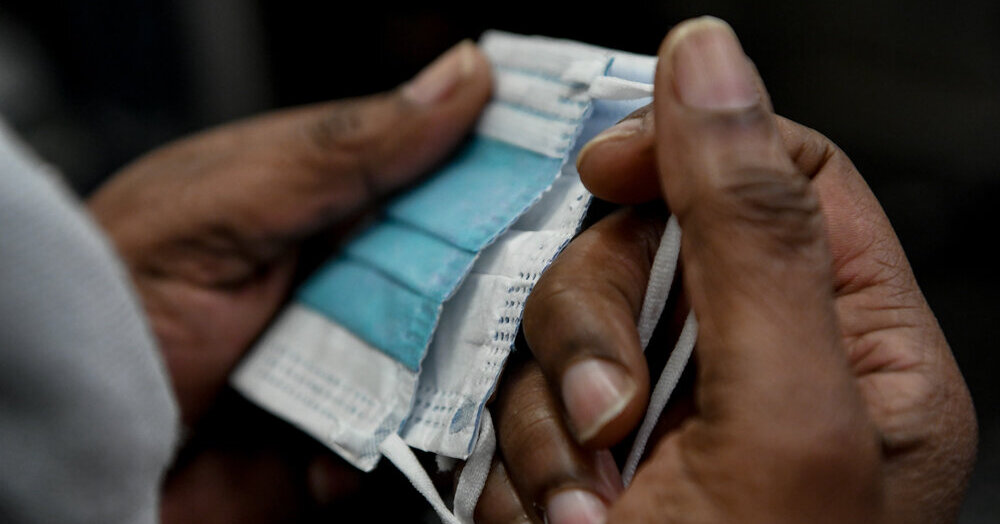
There have been many stages of our collective Covid reaction.
There was the initial panic, with the shortages of toilet paper (I still haven’t completely figured that one out) and Lysol. In those days, one dared not even cough in public. I had a cold when I was in Los Angeles. I sneezed and a friend misted me with sanitizer.
I believe that I experienced the pandemic like many others: stunned and isolated, shocked by the sudden withdrawal of social life and social customs.
In the beginning, many of us found it frightening, but also thought that it would be — or could be — brief.
Donald Trump terribly mismanaged the American response, meaning that people died who didn’t have to. A study by The Lancet Commission on Public Policy last February reported that the United States could have avoided 40 percent of deaths if its death rate reflected that of other Group of 7 nations: Canada, France, Germany, Italy, Japan and the United Kingdom.
Many of us assumed that with a new administration and a new Covid policy, we would see an end to the pandemic. But Republican governors wouldn’t implement better policies, and the virus itself proved harder to deal with than we thought.
Many of the same Group of 7 countries that fared better than the United States under Trump are still struggling with the virus, as we are. For millions around the world, the pandemic continues to drag on.
Last summer, after the initial panic had passed, I began to gravitate to comforting experiences, both sensory and psychological.
I took joy in cooking. I learned to make bread. I followed Tabitha Brown, a vegan cook who dished out big-smile affirmations with her recipes.
I bought more plants. I wasn’t the only one. Sales of house plants soared during the pandemic.
I tuned into D-Nice’s “Club Quarantine.” I listened to the Verzuz battle. I turned to music as a salve. The rhythm provided continuity when routines had been disrupted.
I watched more TV than I ever had, and even there, I returned to classics as much as I explored new offerings.
All of us, I believe, were simply waiting to see when our lives would reset, and what the new normal would look like. We still believed that if we did the right things — at least if enough of us did them — that the pandemic would pass and things would snap back to the way they were.
But, as each month passed, and then each year, it became more and more clear that Covid would most likely move from pandemic to endemic.
As Dr. Anthony Fauci, the White House’s chief medical adviser, said last month: “If you look at the history of infectious diseases, we’ve only eradicated one infectious disease in man, and that’s smallpox. That’s not going to happen with this virus.”
Fauci said that what we should hope for is that Covid would eventually be reduced to a “low level” where it is “integrated into the broad range of infectious diseases that we experience.”
Covid is likely to be here to stay.
The Omicron variant that swept this country and the world this winter is probably not the last one to upend our lives. And we have no assurances that current vaccines will work against subsequent variants.
In 2020, Trump said of Covid: “It’s going to disappear. One day — it’s like a miracle — it will disappear. And from our shores, we — you know, it could get worse before it gets better. It could maybe go away. We’ll see what happens. Nobody really knows.”
That was never going to happen. But now, we know that it may never disappear.
This raises some very serious questions for us as individuals and as a society.
In a Monmouth University poll last month, 70 percent of Americans agreed with the statement: “It’s time we accept that Covid is here to stay and we just need to get on with our lives.”
In the early part of the pandemic, when some Republican governors were following Trump’s lead, politicizing the virus by bucking C.D.C. recommendations, many Democratic governors held the line and committed to following the science.
But now, many of them seem to be buckling as well, lifting mask mandates against C.D.C. recommendations.
The urge, both political and social, to simply “get on with it,” is incredibly strong.
The number of lives taken by Covid in this country alone — north of 900,000 — is almost unfathomable. But, somehow the public has absorbed and reckoned with it in some way. We have taken on a Darwinian sensibility about it all, accepting it as sudden thinning of a herd, a form of natural selection. It is both sad and stunning.
Covid has made us reconsider everything, the meaning of home and work, the value of public space, the magnitude and immediacy of death, what it truly means to be a member of a society.
We are still finding the answers to those questions, but the America we knew ended in 2019. This is a new one, scarred, struggling to its feet, dogged by moral and philosophical questions that on one hand have revealed its cruelty and on the other have forced it into metamorphosis.




